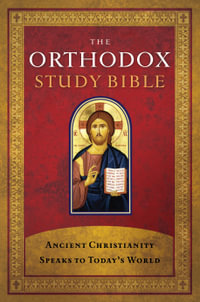Marie Dallam has uncovered an aspect of the African American past about which we have long known too little. In doing so she has made a substantial contribution to the study of twentieth-century African American religion. Assiduously researched and carefully written, Dallams book finally elevates the scholarship on Sweet Daddy Grace to the level of that on his rival and contemporary, Father Divine. -- Wallace D. Best, Harvard Divinity SchoolProvides significant insights for our understanding of Daddy Grace and the House of Prayer. This well-researched, clearly written text is a valuable scholarly resource for those interested in New Religious Movements, American Religion, and African American Religion. -- Sandy Dwayne Martin, author of "For God and Race"Charles Manuel Sweet Daddy Grace founded the United House of Prayer for All People in Wareham, Massachusetts in 1919. This Pentecostal church has been regarded as one of the most extreme Pentecostal sects in the country. In addition to attention-getting maneuvers such as wearing purple suits with glitzy jewelry, purchasing high profile real estate, and conducting baptisms in city streets with a fire hose, the flamboyant Grace reputedly accepted massive donations from his poverty-stricken followers and used the money to live lavishly. It was assumed by many that Grace was the charismatic glue that held his church together, and that once he was gone the institution would disintegrate. Instead, following his 1960 death there was a period of confusion, restructuring, and streamlining. Today the House of Prayer remains an active church with a national membership in the tens of thousands. Daddy Grace seriouslyexamines the religious nature of the House of Prayer, the dimensions of Graces leadership strategies, and the connections between his often ostentatious acts and the intentional infrastructure of the House of Prayer. Furthermore, woven through the text are analyses of the race, class, and gender issues manifest in the House of Prayer structure under Graces aegis.Marie W. Dallam here offers both a religious history of the House of Prayer as an institution and an intellectual history of its colorful and enigmatic leader.
Industry Reviews
"Dallam has uncovered an aspect of the African American past about which we have long known too little. In doing so she has made a substantial contribution to the study of twentieth-century African American religion. Assiduously researched and carefully written, Dallams book finally elevates the scholarship on 'Sweet' Daddy Grace to the level of that of his rival and contemporary, Father Divine." -- Wallace D. Best,Harvard Divinity School
"Provides significant insights for our understanding of Daddy Grace and the House of Prayer. This well-researched, clearly written text is a valuable scholarly resource for those interested in New Religious Movements, American Religion, and African American Religion." -- Sandy Dwayne Martin,author of For God and Race
"This edgy and resourceful analysis of Daddy Grace, a misunderstood yet highly significant religious luminary, expands our understanding of a critical period in the black church experience. Dallams meticulous scholarship fills in many crucial pieces and refutes longstanding inaccuracies regarding Grace's life, message, and legacy." -- Shayne Lee,author of T. D. Jakes: America's New Preacher
"Dallam has made a major contribution to the scholarship and literature on Daddy Grace and the United House of Prayer for All People." * Choice *
"Dallam has done a great service in providing a detailed scholarly study of 'Sweet Daddy' Grace and his church. . . . A thoughtful study that should henceforth make it impossible to dismiss Grace as a 'cult leader' who had little religious significance in his lifetime or beyond." * Journal of American History *
"This useful book should promote further serious study of Grace as a religious leader and of the church he founded." * Journal of American History *

























